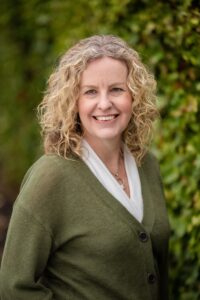The Twenty-sixth Sunday after Pentecost/Reign of Christ (Proper 29), November 26, 2023
October 25, 2023 | by Beth Hayward
| Reading 1 | Reading 2 | Reading 3 | Reading 4 | Reading 1 Alt | Reading 2 Alt |
|---|---|---|---|---|---|
| Matthew 25:31-46 |
We end the year with another parable. I believe it was preacher Tom Long who warned about the trap of parables; meaning, just when you think you’ve figured it out something new opens and turns your interpretation on its head. Parables have these twists and turns and trap doors. And this one is no exception: “You wander into it thinking you can figure out how to be counted among the sheep, only to discover that the very attempt locates you within the goat herd.”[1]
We can skirt the eternal judgment issue a bit. As a parable, there’s no reason to think we are talking about literal and eternal damnation. Eternal judgment in a parable is more of a tool to get a point across than a predictor of the future. I might also bring to our attention the translational issue that suggests the judgment on all the nations here is just referring to two “nations” the Gentiles and the Jews. It’s not a universal sort of thing and maybe doesn’t apply to us.
But here’s the thing: whether there’s eternal judgment or not, whether it’s used here to get a point across in a parable or whether it’s a foreshadow of what is to come, all that’s moot. Because as one commentator points out “Matthew’s Jesus does not instruct disciples that they should become the salt of the earth or the light of the world; he tells them they are [those things] … Jesus does not command his followers to hunger and thirst for justice, pursue peace, and so forth; he blesses those who do (5:1-16). Judgment simply brings out a reality that has been present all along.”[2] It’s not who you are, it’s what you do.
You know what I mean? Judgment isn’t something that happens when all is said and done, and some all-powerful God reviews all the evidence and makes a ruling. We’re not judged by the findings of a tally sheet. We’re not even judged by who we are, or who we think we are but by how we live moment to moment. Each moment is a choice to bear good fruit or not. Judgment already is, right here and now. Judgment is already found in the choices we make. This is a story that reveals a glimpse of how to live our lives not how to set ourselves up for judgment day. This is about being a Christian, now. It’s not that we must wait for some afterlife to learn on which side of the great divide we land. In fact, every effort to identify ourselves as good sheep will inevitably make us goats.
I find this pretty humbling because most days when it comes to political things, I am very much convinced that my side is the sheep side! The challenge here is to spend less time trying to place ourselves in the story, and more time living it. Process thought speaks about the interconnectedness of all life. This parable speaks to this interconnection and the truth that everything is connected whether we see it or not. In other words, our actions (or lack of) all have an impact on our fellow humans, and all of creation. We can’t live lives in isolation. We can choose to be ignorant but still our actions impact the whole.
Of course, we need to preach the good news. We need to preach hope, as much because people are hungry for it as because it is a key tenant of our tradition. With that in mind, be careful to not make this a message about what we ought to do. Perhaps instead, lean into a sense of curiosity and wonder. Point out the glimmers you’ve seen of your people being sheep. Maybe even lift-up their goat moments, alongside the gospel promise of grace and new life. Each moment is a new moment to choose life, to make the next best choice within your circumstance. Remind them that God doesn’t abandon, not even when we’re prone to being stubborn old goats.
[1] https://www.workingpreacher.org/preaching.aspx?commentary_id=2403
[2] https://www.workingpreacher.org/preaching.aspx?commentary_id=2209
Beth Hayward is an ordained minister with the United Church of Canada. Having served congregations from coast to coast in over 20 years of ministry, she describes herself as a practical public theologian. Beth is particularly interested in the ways Process preaching can inform authentic communal experience and transform the way people engage with their neighbours in a pluralistic world. You can connect with her through her website bethhayward.org

